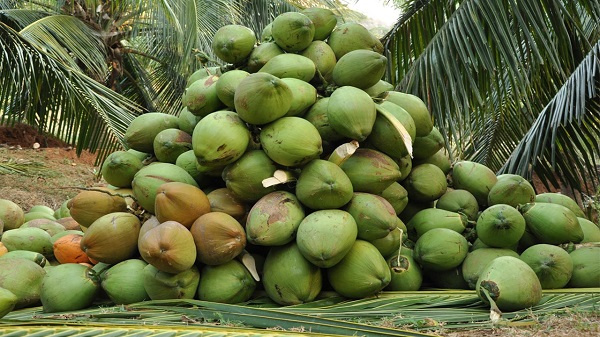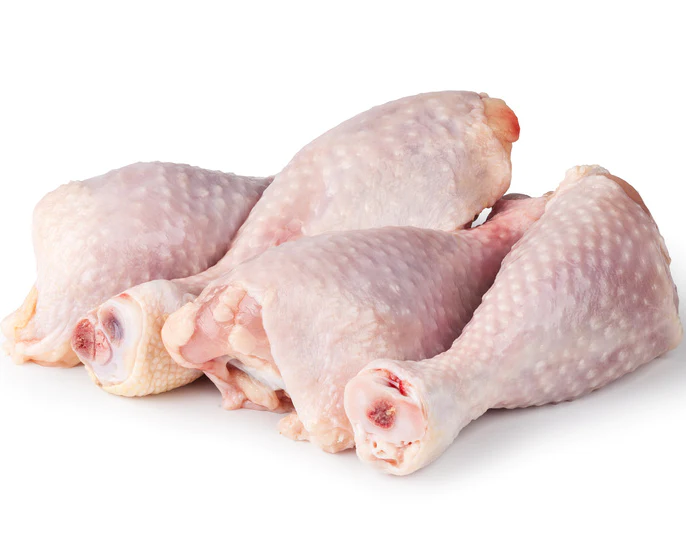Have you ever sipped the refreshing water of a freshly cracked coconut on a warm day? Or savoured the rich, creamy texture of coconut flesh in your favourite dish? The tropical charm of coconuts is undeniable, and in Ghana, these versatile fruits are not just a treat, but a part of daily life.
But have you ever wondered about the factors that influence the market price of fresh coconuts in Ghana? What makes them affordable in some seasons and pricier in others?
Join us on a journey to uncover the secrets behind the fluctuating market price of this beloved tropical delight.
Market Price of Fresh Coconut in Ghana
Fresh Coconut Farming and Production in Ghana
Coconut cultivation in Ghana is mainly concentrated in the coastal regions of the country, including the Central, Western, and Greater Accra regions. The Volta and Eastern regions also have some coconut plantations but to a lesser extent.
Coconut production in Ghana has been on the rise in recent years. According to Tridge, the total import/export value of Other Fresh Coconut in Ghana decreased in 2023, but the consumption of coconuts in the country remains high.
Coconut farming is largely distributed and diluted, with small-scale farming comprising the majority of coconut farming in Ghana. Coconut farming occurs on farms less than an acre in scale and is highly integrated with mixed cropping and livestock farming systems.
Coconut farming and production contribute significantly to the Ghanaian economy. The crop provides income for many smallholder farmers and their families, and it is estimated that the coconut industry employs over 200,000 people in the country.
Coconut products such as coconut oil, coconut water, and coconut milk are also exported, contributing to the country’s foreign exchange earnings. However, the industry faces challenges such as low productivity, pests and diseases, and inadequate processing facilities.
Uses and Benefits of Fresh Coconut
Coconut is a versatile fruit that has many uses and benefits. Here are some of the benefits of coconut:
Health Benefits of Coconut
- Coconut can fight inflammation, which is linked to many chronic diseases.
- It’s great for gut health and can help improve digestion.
- Coconut is a superfood for glowing skin, as it contains antioxidants that can help protect your skin from damage.
- It may improve cognitive function, as some studies suggest that the medium-chain triglycerides (MCTs) found in coconut oil can improve brain function in people with Alzheimer’s disease.
- Coconut is rich in fibre, minerals such as iron, manganese, copper, and magnesium, and vitamins such as vitamin B.
Culinary Uses of Coconut
- Coconut is used to make coconut water, milk, oil, and tasty meat.
- Coconut adds a nice flavour to savoury dishes such as curries, stir-fries, and soups.
- Flaked or shaved coconut can be used to add flavour to baked goods such as cookies, muffins, and puddings.
Other Uses of Coconut
- Coconut oil can be used as a natural moisturizer for the skin and hair.
- Coconut husks can be used as a scrubber.
- Coconut wood can be used as fuel.
Market Price of Fresh Coconut
The coconut market in Ghana has experienced fluctuations in prices over the years. In May 2021, the price of fresh coconut increased from GHS 2.00 to GHS 2.50 in Koforidua, which sellers attributed to hikes in transport. In September 2022, Ghana Web reported that the price of coconut had increased from GHS 2.50 in 2021 to GHS 4.
As of August 2023, the retail price of fresh coconuts in Ghana is between GHS 4 to GHS 7 in Accra. This price depends on the location or seller. But the price can be lesser in some areas.
Factors Affecting the Price of Fresh Coconut in Ghana
Several factors can affect the price of coconuts in Ghana, including:
Supply and demand: The price of coconuts can be influenced by the balance between the supply and demand of the fruit in the market. When the supply of coconuts is low and the demand is high, the price tends to increase, and vice versa.
Transportation costs: The cost of transporting coconuts from the production areas to the markets can affect the price of the fruit. When transportation costs increase, the price of coconuts tends to increase as well.
Packaging: The packaging of coconuts can also affect their price. Coconuts that are packaged in a way that preserves their freshness and quality tend to be priced higher than those that are not.
Health benefits: The health benefits of coconuts can also influence their price. Consumers are often willing to pay more for coconuts that are perceived to have health benefits.
Economic conditions: The overall economic conditions in Ghana can also affect the price of coconuts. For example, when the cost of living is high, the price of coconuts tends to increase as well.
Production and processing facilities: The availability and efficiency of production and processing facilities can also affect the price of coconuts. When there are inadequate processing facilities, the price of coconuts tends to increase.
Recommended Resources:
In conclusion, the market price of fresh coconuts in Ghana is a reflection of various factors that contribute to their availability and demand. From seasonal variations and weather conditions to transportation costs and market dynamics, these elements play a pivotal role in determining the price consumers pay for this cherished tropical fruit.
As consumers, understanding these factors can help us appreciate the ebb and flow of prices and make informed choices. Whether enjoyed as a refreshing drink or incorporated into a variety of dishes, the allure of fresh coconuts remains strong in Ghana, a testament to their cultural significance and culinary versatility.
So, the next time you savour the taste of a delicious coconut treat, remember that behind its price lies a complex interplay of factors that shape its journey from the palm tree to your plate.






